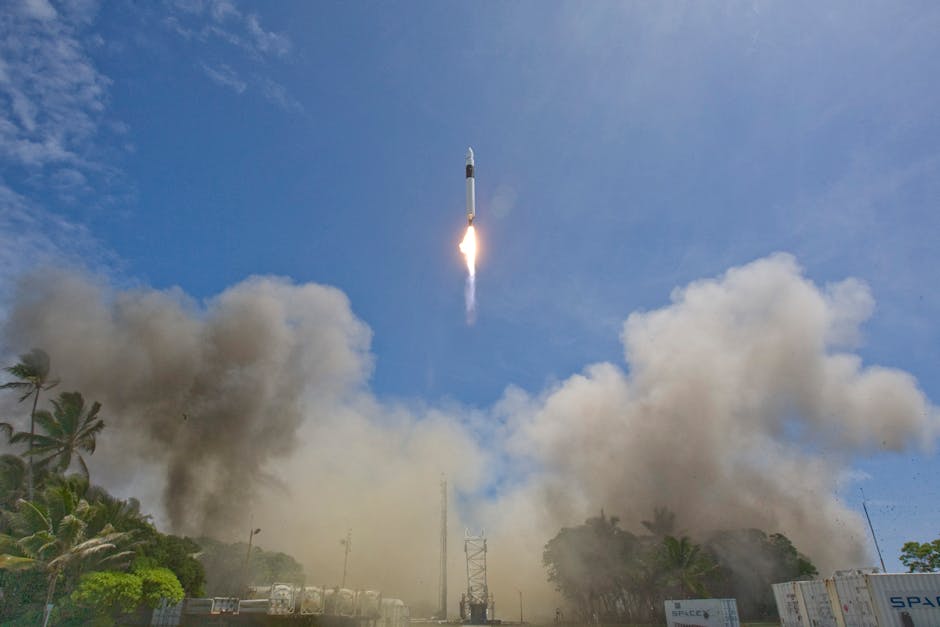Current Valuation and Growth Trajectory
SpaceX's valuation has skyrocketed to an impressive $350 billion, showcasing the company's adept financial maneuvers and market strategies. This valuation surge stems from a strategic secondary stock sale, where SpaceX and investors agreed to purchase $1.25 billion worth of shares from insiders at $185 per share.
Starlink, SpaceX's satellite internet business, has emerged as a significant revenue driver. With approximately 7,000 satellites deployed and a subscriber base of about five million, Starlink substantially bolsters the company's overall valuation.
Investors are particularly drawn to SpaceX's dominance in the U.S. satellite launch market. The company's Falcon rockets have secured a stronghold, leaving competitors struggling to keep pace.
SpaceX's extensive testing of its Starship, designed for reaching new cosmic frontiers, continues to maintain investor confidence and cash flow. The company's ability to conduct buybacks of up to $500 million in common stock reflects its robust financial position.
Notably, SpaceX's market value now surpasses many top U.S. defense contractors, demonstrating both its industry foothold and investor confidence in its trajectory. In fact, among U.S. companies in the S&P 500, SpaceX would rank in the top 25 by market cap, positioned between Johnson & Johnson and Bank of America.
Major Stakeholders and Investment Strategies
Elon Musk maintains a commanding 54% ownership and 78% of voting rights in SpaceX, enabling swift, ambitious decision-making without traditional constraints. This majority stake allows Musk to steer the company's long-term vision without undue pressure from external shareholders.
Notable investors have infused substantial capital into the enterprise:
- Google: Invested $1 billion in 2015, securing a 7.5% stake and positioning itself as a strategic partner.
- Fidelity Investments: Contributed an additional $1 billion, acquiring a 10.2% stake.
- Founders Fund: Led by venture capitalist Peter Thiel, invested $20 million in 2008 for a 10.4% stake.
These key stakeholders provide SpaceX with financial stability and room to innovate. Their involvement enhances investor confidence broadly, allowing SpaceX to operate with the vigor of a startup while enjoying the valuation resilience of a more mature entity.
The blend of well-strategized investments and Elon Musk's visionary leadership propels SpaceX beyond terrestrial restrictions, crafting a significant legacy in both space exploration and economic potential.

Indirect Investment Opportunities
While direct investment in SpaceX remains out of reach for most retail investors, various mutual funds and ETFs offer indirect exposure to the company's growth. Notable options include:
- ERShares Crossover ETF (XOVR):
- SpaceX weight: 12.3%
- Expense ratio: 0.75%
- Daily liquidity
- No minimum investment
- ARK Venture Fund (ARKVX):
- SpaceX weight: 12.4%
- Expense ratio: 5.76%
- Quarterly liquidity
- $500 minimum investment
- Baron Partners Fund (BPTRX):
- SpaceX weight: 9.8%
- Expense ratio: 2.44%
- Daily liquidity
- No minimum investment
The ERShares Crossover ETF blends public and private equities, with SpaceX representing a significant portion of its holdings. XOVR offers daily liquidity and a low expense ratio, accessible through major brokerage platforms. However, its focus on entrepreneurial companies may not suit investors seeking stability or high dividends.
ARK Venture Fund allows investors to indirectly hold SpaceX stock through a portfolio targeted at disruptive technology. ARKVX offers significant exposure to SpaceX but requires a higher minimum investment and fees, with liquidity limited to quarterly redemption options.
Both funds provide retail investors access to SpaceX's growth potential within diversified portfolios. When evaluating these options, investors should consider their risk tolerance and investment horizons, balancing the potential for high returns with accessibility and liquidity needs.

The Future of Space Investment
SpaceX is reshaping the investment landscape in the aerospace sector. The company's innovations, from reusable rockets to the Starlink constellation, are setting new benchmarks for the industry and prompting a re-evaluation of what is possible and profitable in space ventures.
The efficiency and cost-effectiveness of reusable rockets have significantly reduced launch costs, inviting investors to reconsider traditional metrics for valuing aerospace enterprises. This innovation has created a ripple effect, forcing competitors to accelerate their own development efforts and leading to broader technological advancements in areas such as in-orbit manufacturing, lunar exploration, and satellite servicing.
"A giant amount of shareholder value can be created just by taking a single-digit percentage of SpaceX's business."
Market dynamics are evolving alongside these advancements. SpaceX's success has spurred interest from unconventional sectors and catalyzed multinational alliances eager to participate in space's commercial potential. The democratization of space access enables companies of various sizes to engage with space-related ventures, fostering competition and driving down costs.
The regulatory landscape remains a crucial consideration. As the industry pushes boundaries, regulatory bodies must adapt to accommodate unprecedented developments while balancing innovation with safety. For investors, understanding this evolving regulatory environment is paramount when assessing potential opportunities in the space sector.
SpaceX's trailblazing initiatives have redefined aerospace investments, making the cosmos not just the final frontier in exploration, but a burgeoning arena for investors seeking groundbreaking opportunities. The future of space investments is promising and unfolding rapidly, with SpaceX at the helm, shaping a new era of exploration and economic potential.

- Skipper J. SpaceX's next-generation Starship spacecraft atop its powerful Super Heavy rocket is launched on its sixth test at the company's Boca Chica launch pad in Brownsville, Texas, on Nov. 19, 2024. CNBC. 2024.
- Christensen C. Innovator's Dilemma. Harvard Business Review Press; 1997.
- Baron R. Interview with CNBC's Squawk. CNBC. 2024.
![]()
